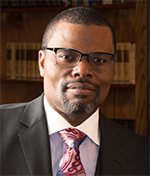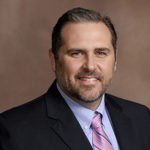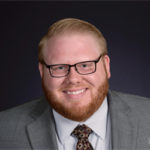Increasingly stringent public health guidelines regarding the COVID-19 outbreak not only forced Texas Baptist churches to make rapid adjustments to worship, but also to think creatively about how to minister in the weeks ahead.
After county judges in several metropolitan areas strongly recommended all gatherings of more than 250 people be canceled—and in Dallas County, expressly prohibited gatherings with more than 500 people—a significant number of churches announced online-only worship for March 15.
Some churches with attendance significantly below the 250-person threshold—or in parts of the state without recorded cases of COVID-19—gathered for Sunday morning worship, while taking special precautions to avoid the spread of infection and noting the usual schedule of activities was subject to change.
But by later in the day, most were scrambling to make alternative plans for upcoming weeks after the Centers for Disease Control and Prevention issued new recommendations that organizers cancel or postpone gatherings of 50 people or more for the next eight weeks. Later, officials strongly advised individuals to avoid groups of 10 or more.
Learning to worship virtually
Multiple churches that had video recording capability—and some that learned how to do it on the fly—offered worship services online.
Churches also used social media to communicate information about local sites where students who were out of school could receive healthy meals. Many public schoolteachers who are members of Texas Baptist churches offered to help parents who suddenly found themselves homeschooling their children for an indeterminate time.

Michael Evans, pastor of Bethlehem Baptist Church in Mansfield, posted a video on March 14 announcing all meetings at the church would be cancelled for two weeks, but a worship service would be available to view on social media, the church’s website, its mobile app and on YouTube.
On Sunday morning, a small praise team—who “kept an appropriate distance from each other”—replaced the full choir of more than 50 voices that typically sings at Bethlehem Baptist, he said.
The church used multiple avenues to inform members about the video worship service and urged them not to attend, “but we did not lock the doors of the church,” said Evans, president of the Baptist General Convention of Texas.
Sign up for our weekly edition and get all our headlines in your inbox on Thursdays
So, when the scaled-down group of worship leaders gathered to broadcast the Sunday morning service, more than 50 worshippers joined them in person.
About 300 typically attend the church’s 7:45 worship service, but more than 1,000 viewed the service on Facebook, and about an equal number watched the 11 a.m. service, Evans noted.
‘Bringing God’s house to your house’
Steve Wells, pastor of South Main Baptist Church in Houston, similarly posted a video on March 14 announcing the church’s campus would be closed at least through March 27, and worship services for two weeks would be available via webcast, “bringing God’s house to your house.”

In times of economic recession and global pandemic, Christians need to show their neighbors the peace that Christ offers and demonstrate through faithfulness what it means to trust God, Wells said in his March 15 sermon.
“People around us in the coming days are going to be anxious and afraid, and some of them are going to panic. And they’re going to need more counsel than just, ‘Please don’t buy out the toilet paper aisle,” which means we’re going to have to live out our faith,” he said.
In a phone interview, Wells noted South Main members seemed to appreciate the “shared experience” and “familiar rhythms” an 11 a.m. Sunday webcast offered.
At the same time, while church leaders were discussing additional video broadcasts including a Bible study and Wednesday evening prayer time, the church also was “ramping up the phone chains” to discover pastoral care needs, keep members connected and allow them to “hear a familiar voice,” he added.
“People need more touch points, not fewer touch points, during unusual times like this,” Wells said.
One of the blessings of a shared experience like the current pandemic is that ministers who may not typically contact each other are reaching out to share ideas about how to worship and minister in an unfamiliar context.
“There is a grace-filled community of people working together,” he said.
Make a ‘heart-to-heart’ connection
In Nederland, First Baptist Church met together for worship on March 15, but cancelled other activities and implemented multiple precautions—including posting hand sanitizer dispensers at all entrances and throughout the sanctuary.

First Baptist in Nederland cancelled in-person worship services on March 22 and will “take it week by week” in the immediate future regarding schedule adjustments, Pastor Jason Burden said.
For however long the limitations on public gatherings continue, Burden said, “We want to ramp up our online presence.”
Earlier in the year, Burden had begun recording twice-daily devotionals at 7 a.m. and 7 p.m. with a smartphone, posting them on social media.
“As it turns out, that served us well in preparing us for this time,” he said. “It’s become a meaningful electronic gathering place for our people.”
When natural disasters hit the community in the past, First Baptist in Nederland opened its facility in response to community needs. In this situation, the church is caring for its community by closing its doors to group meetings for a time, he noted.
Limited opportunities for in-person fellowship and worship make it even more important for individual Christians to reach out personally and discover needs to which the church can respond, said Burden, first vice president of the BGCT.
“Just because we can’t be together face to face and connect that way, it doesn’t mean we can’t have a heart-to-heart connection in a meaningful way and be available to one another,” he said.
‘See the possibility to do meaningful ministry’
First Baptist Crowell—a congregation in rural Foard County, about 80 miles west of Wichita Falls—averages about 50 in weekly attendance. So, the congregation met for worship on March 15, but the church streamed its service live on social media for the first time.

The church already had the capability to make video recordings of worship services, which it makes available to local nursing homes, and audio recordings that it posts on its website. However, since it lacked the ability to use its audio-visual equipment to broadcast a service live, Pastor Chris McLain decided to experiment with Facebook Live.
“I just used a couple of hymnals and propped up my phone on the front pew,” he said.
That approach provided a serviceable broadcast that not only reached homebound members, but also was viewed by others in the community, he noted. It also prompted the pastor to order a tripod and microphone for his smartphone.
Moving forward, McLain said, his church will comply with the revised public health recommendations. On March 22, a small group—fewer than 10 people—will gather at First Baptist in Crowell for a service the church will livestream on social media and later post on its newly created YouTube channel.
McLain also has used social media to emphasize “the church is not ‘closed’” just because it is not gathering for in-person worship. Church leaders are available to pick up and deliver essential items from the pharmacy or grocery store for individuals who need help, he stressed.
“We see the possibility to do meaningful ministry,” he said.
Helpful links to information about COVID-19
Resources from Wheaton College and Saddleback Church
https://coronavirusandthechurch.com/#resources
Texas Baptists COVID-19 response
https://texasbaptists.org/response/covid-19
Centers for Disease Control and Prevention















We seek to connect God’s story and God’s people around the world. To learn more about God’s story, click here.
Send comments and feedback to Eric Black, our editor. For comments to be published, please specify “letter to the editor.” Maximum length for publication is 300 words.